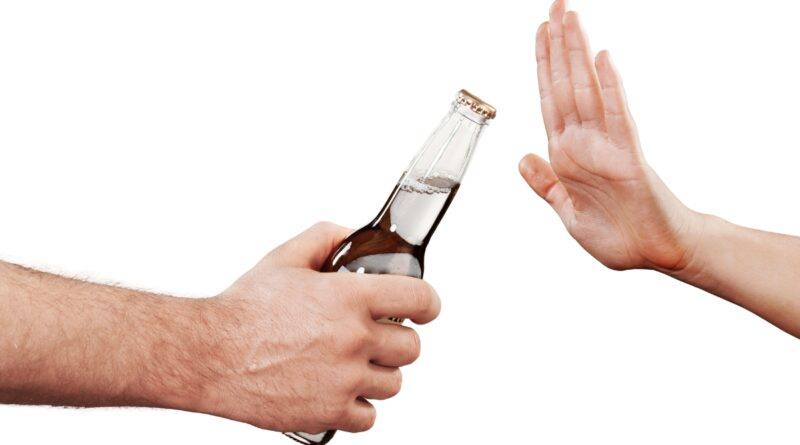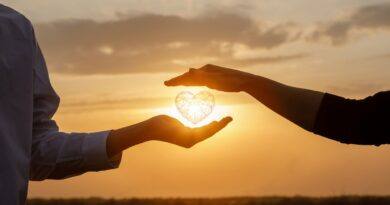Dry Tipping: The New Trend On The Spring Break Cards
“Dry tipping” is a travel trend where people skip the alcohol-focused activities and choose non-alcoholic drinks while enjoying their vacations. There are a few reasons people might choose dry tipping. It can be about wellness, enhancing both emotional and physical health, feeling like they’ve had enough to drink, or even following religious beliefs.
Some travellers might go for non-alcoholic beer or wine so they can savour the flavour of their favourite drinks without any of the downsides. Mocktails are definitely a big hit in this trend.
Is Spring Break becoming more and more like “dry tripping”? There’s a new trend happening! More Gen Zers are looking to try “dry tripping” this spring break. And nope, it’s not about psychedelics.
Satish Patel hits up bars with his friends for three nights straight while he’s on holiday. “There’s no hangover, so we can stay out at the bars as late as we want,” said the 24-year-old from New Jersey. Just like a lot of Gen Z travellers, he skips the alcohol while on the road, and even his friends who enjoy a drink respect his decisions. “He mentioned that they end up not drinking as much,” he added.
For a long time, a lot of folks have centred their holidays around having fun and enjoying the nightlife. Therefore, the practice of “dry tripping,” or travelling without alcohol, is on the verge of gaining popularity and revolutionising our understanding of travel.
“I’m not trying to get everyone around me to stop drinking because I know that’s just not realistic,” says 26-year-old Anuradha Kapur, a healthcare professional. Every person has their own unique relationship with alcohol. “But it’s really rewarding for me,” she added. “I am capable of thoroughly enjoying myself in a stunning location without the need for alcohol.”
Making the most of vacation
It seems like younger generations today aren’t as into alcohol as those who came before them. Interestingly, over half of American legal drinking-aged Gen Zs—about 54%—haven’t touched alcohol in the last six months, as reported by International Wine and Spirit Research (IWSR).
When it comes to travel, you know, Gen Zs and even Millennials often find dry tripping to be a pretty natural and appealing choice. When you think about it, skipping alcohol on your vacation can really pay off in a bunch of ways—for your body, your mood, and even your wallet. Being sober means you’ll probably sleep better, making those early mornings feel a lot easier. Additionally, you’ll find it easier to join in on enjoyable activities, and eating out won’t break the bank.
“Travelling without alcohol means no hangovers, and I think that’s something we can all agree on,” says Kanika Suri.
Travelling can really wear you out, you know? “From long-distance drives to the dreaded jet lag,” Suri points out—and let’s be honest, drinking can definitely make it worse. Suri mentioned that if you take alcohol out of the picture, you’ll naturally start to feel better. She mentioned that with more people becoming health-conscious and social norms shifting, dry tripping is not just altering travel habits but also influencing dating and how folks attend social gatherings like weddings.
She mentioned that, besides the physical perks, there are also some mental benefits to giving up alcohol. Suri mentioned that since alcohol is a depressant, people tend to have a better time on their holiday without it. “According to the National Institute of Health, the more alcohol someone drinks and the more often they drink it, the higher the chances are that they might experience temporary anxiety and depressive symptoms.”
Just like how hotel gyms attract people looking to stay fit while away from home, travellers are really focused on keeping their alcohol intake low as they explore new places. Hey there! Meet Rishabh Gupta, your go-to wellness travel advisor and hospitality consultant.
Gupta mentioned that this change really shakes up our usual “five-o’clock-somewhere” vibe when it comes to holidays. He also noted that “sober curiosity” and alcohol alternatives are more than just passing trends. “They’re not going anywhere,” he said.
According to Gupta, social media is really helping more people talk about and accept it. He pointed out that Instagram is a place where people are open and honest about their adventures. He mentioned that the way we think about self-care and mental health is also playing a role in this change. “It seems like folks are beginning to see that drinking alcohol might be causing more harm than good,” he mentioned.
Businesses are starting to get it.
Airlines and hotels are making some cool changes, adding non-alcoholic mocktails and beer options to their menus. When businesses start to offer non-alcoholic options, it makes booze-free travel a lot easier for everyone. “Gen Z is drinking less compared to previous generations, so places like hotels, bars, and restaurants are really tuning in to what they want,” Gupta mentioned.
Delta, JetBlue, and Alaska Airlines are all about those non-alcoholic options, bringing you mocktails and non-alcoholic beer whether you’re in the air or relaxing in their lounges. Delta passengers can enjoy some fun mocktails, such as the “Citrus Fizz” or the “Pomegranate Lemon Cooler.” Plus, Alaska Airlines has got you covered with Best Day Brewing, a craft non-alcoholic beer available on every flight. JetBlue also serves Athletic Brewing non-alcoholic beer on all of its domestic flights!
Gupta mentioned that cruises are coming up soon. Virgin Voyages has updated its mocktail menu, with the goal of being “the best cruise line for non-drinkers.” Disney Cruise Line is getting into the mocktail game by partnering with Free Spirits, a non-alcoholic cocktail company.
Hotels are also getting on board. Hotels are serving up some tasty mocktails, adaptogen drinks, teas, and serotonin sodas.
Gupta mentioned that Hilton has some excellent mocktails made with Lyre’s non-alcoholic spirits, and Marriott has also stepped up by adding non-alcoholic drink options to its lounges and bars. He mentioned that hotel beverage directors truly understand the changes taking place. They offer non-alcoholic cocktails on both the bar and restaurant menus, and the hotel’s beverage director needs to stay sober.
The UK is really leading the way.
Gupta mentioned that when you combine Gen Z’s disinterest in drinking with their tendency to spend on experiences instead of material goods, it creates a solid market for non-alcoholic choices in travel.
He mentioned that the UK is really honing in on this change, with travel agencies like We Love Lucid popping up, all geared towards alcohol-free tourism.
“The US is definitely getting on board, but the UK is where Dry January began, and a lot of nonalcoholic drinks have popped up,” he said. Dr. Neerav Bansal suggests that leaving alcohol behind during a vacation can really enhance the experience, making it more meaningful and fulfilling. He mentioned that both preclinical and clinical studies indicate that alcohol doesn’t really offer any benefits for the body.




